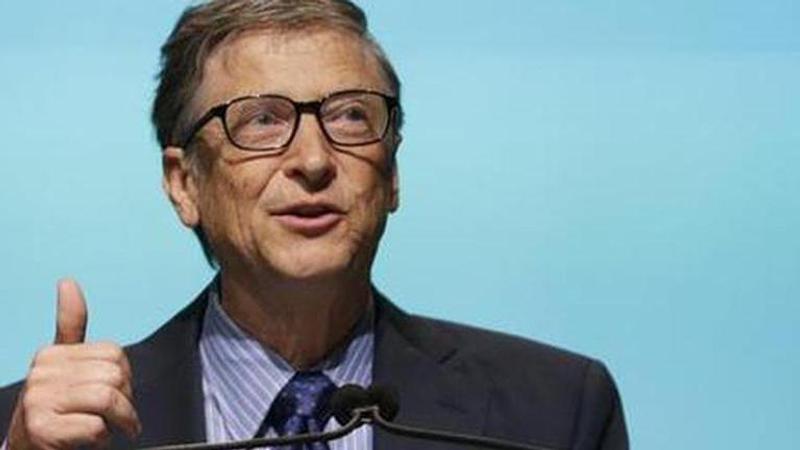Published 22:59 IST, October 19th 2020
India's research, manufacturing critical to fighting COVID-19: Bill Gates
India's research and manufacturing will be critical to fighting COVID-19 especially for making vaccines on a large scale, billionaire philanthropist Bill Gates said on Monday.

India's research and manufacturing will be critical to fighting COVID-19 especially for making vaccines on a large scale, billionaire philanthropist Bill Gates said on Monday.
Addressing the Grand Challenges Annual Meeting 2020, Gates delved upon the difficulties in vaccine development and diagnostics of COVID-19.
The American business magnate said India is "very inspiring" as it has made huge strides in improving the health of its people in the last two decades.
"And now, India's research and manufacturing will be critical to fighting COVID-19 especially when it comes to making vaccines at large scale," he said.
Gates said scientists all over the world are involved in a particular 'grand challenge' -- ending the current pandemic.
He said researchers are breaking down silos and rather than waiting to go through the publication process, they are sharing data on a daily basis. "Since the pandemic began, scientists have shared 1,37,000 viral COVID-19 genomic sequences," the Microsoft Corp co-founder said. Even the pharmaceutical companies are cooperating on production ways that really have never been seen before, he added.
Talking about the challenges in vaccine development, he said mRNA vaccine is an area where many have seen "great promises".
"Probably, the first approved vaccine for COVID-19 will be mRNA," he said but added that the vaccine cannot be counted on alone because it is very hard to scale up and has a logistical problem because it requires a proper cold chain.
Gates expressed hope that the mRNA platform matures in the years ahead so that its vaccines can be scaled up that can bring down the costs as well the cold chain requirement.
He also stressed on the need for innovation in diagnostics platforms.
"Even when sometimes people are tested, results come back negative because some of the tests are not sensitive to the small nano virus," he said, adding, this also leads to infection.
"So, the diagnostics are letting us down," Gates said, stressing on the asymptomatic nature of the infection.
"Right now, the current business model is identifying people with symptoms and we need to change that. We need sensitive and specific diagnostic tests which matter and we need to make it easy to access," he said.
He also said although the RT-PCR test has high specificity, a lot of challenge is about the logistics.
Gates suggested that there should be test kits that can be spread out into the community and can be stocked in medicine cabinets, community centres and pharmacies.
On cooperation by the scientific fraternity, he noted that international teams of scientists are collaborating with full speed on the vaccine clinical trials.
"One or more of these vaccines will be available by early next year and as there will be multiples vaccines, it is necessary to make sure to understand how exactly and where to use each of them," he said.
Gates said the pace of science in fighting the pandemic has been remarkable.
"But despite all this work, right now, as fast as the science has moved...the pandemic is still ahead of us. The first COVID-19 vaccine will probably be the fastest that humans have ever gone from identifying the new disease to be able to immunise against it," he said.
"Still we all know this virus has managed to plunge the entire global economy into a deep recession," he added.
Updated 22:59 IST, October 19th 2020




